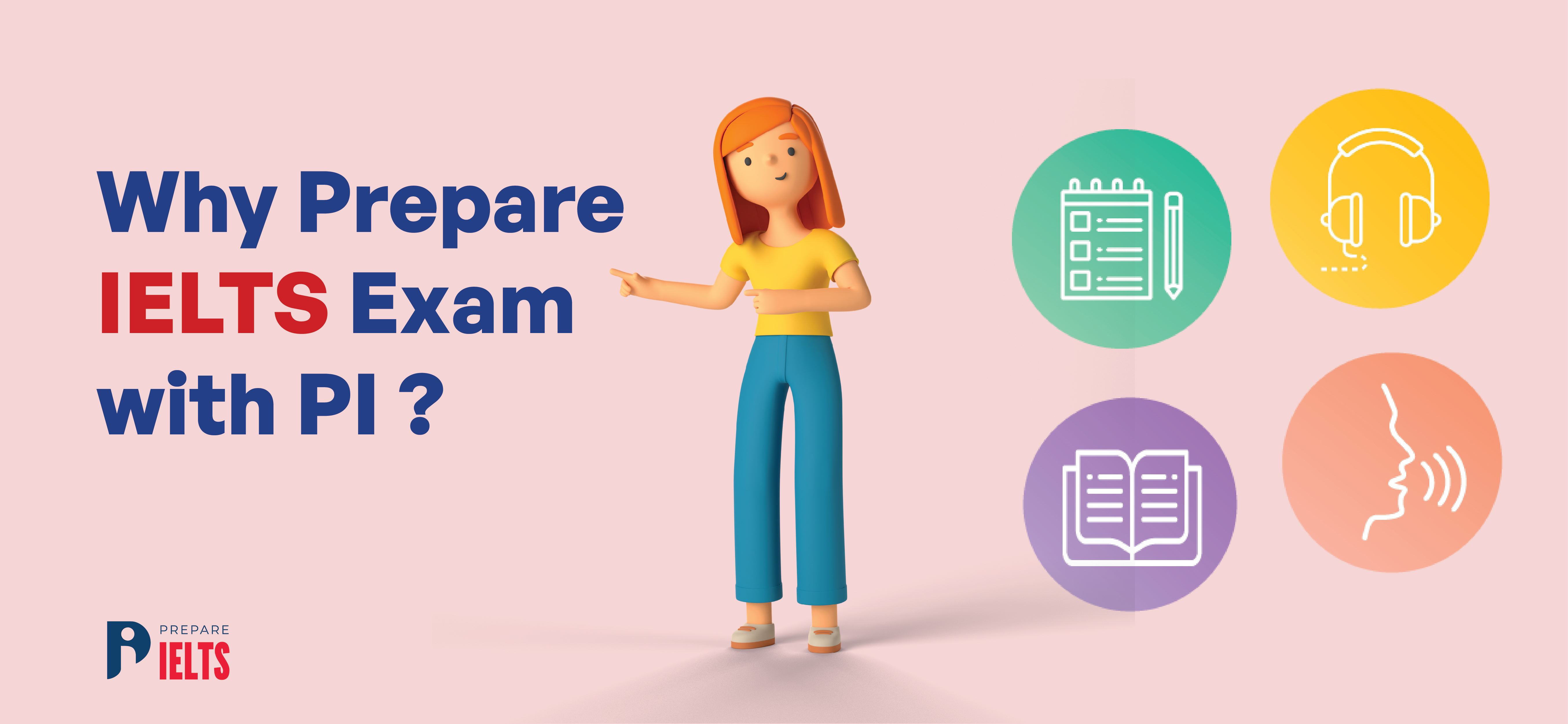How to Score Well on the IELTS Speaking Section?
PI - Prepare IELTS
3 Mar, 2023

The Speaking section of the International English Language Testing System (IELTS) exam is one of the most challenging parts of the test for many test-takers. It is an oral test that assesses the ability of the test-taker to communicate effectively in English.
The Speaking section is a face-to- face interview between the test-taker and an examiner, and it usually takes around 11-14 minutes to complete. In this blog post, we will discuss some tips and strategies to help you do well on the Speaking section of the IELTS exam.
Before you take the IELTS Speaking test, it is important to understand the test format. The test consists of three parts. In Part 1, the examiner will ask you some general questions about yourself, such as your name, nationality, occupation, hobbies, and interests. In Part 2, you will be given a topic to talk about for two minutes. In Part 3, the examiner will ask you some more abstract and complex questions related to the topic you talked about in Part 2. By understanding the test format, you will feel more confident and prepared when you take the Speaking test.
The best way to prepare for the IELTS Speaking test is to practice speaking English as much as possible. This will help you become more comfortable and fluent in the language. Practice speaking with native English speakers or with friends who are also preparing for the test. You can also practice speaking by recording yourself and listening to your pronunciation and grammar.
Having a good vocabulary is important for doing well on the IELTS Speaking test. You need to be able to express your thoughts and ideas clearly and accurately. To improve your vocabulary, read as much as you can, especially newspapers, magazines, and books. Make a list of new words and their meanings, and try to use them in your conversations.
Grammar is another important aspect of the IELTS Speaking test. You need to use correct grammar when speaking to convey your thoughts effectively. To improve your grammar skills, study the rules of English grammar and practice using them in your conversations. You can also take online courses or classes to help you improve your grammar.
During the Speaking test, it is important to listen carefully to the examiner's questions. Make sure you understand the question before you start answering. If you don't understand the question, ask the examiner to repeat it or clarify it for you.
It is important to organize your thoughts before you start speaking. Take a few seconds to think about your answer before you start speaking. This will help you organize your thoughts and answer the question more effectively.
During the Speaking test, try to speak clearly and fluently. This will help the examiner understand your answers better. Speak at a natural pace, not too fast or too slow. Use intonation and stress to emphasize important points and make your speech more interesting.
Using idioms and expressions can make your speech more interesting and engaging. However, make sure you use them correctly and appropriately. Don't use idioms and expressions that you are not familiar with, as this can lead to confusion and misunderstanding.
Having a positive attitude and being confident can help you do well on the IELTS Speaking test. Believe in yourself and your abilities, and don't be afraid to express your opinions and ideas. Don't worry about making mistakes; it is natural to fumble.
It is important to stay on topic during the IELTS Speaking test. Make sure you answer the questions that are asked and don't deviate from the topic. If you are unsure about the topic or question, ask the examiner to clarify it for you.
Using a variety of vocabulary can help you show off your language skills and impress the examiner. Don't use the same words over and over again; instead, try to use synonyms and related words to express your ideas.
Pronunciation is an important aspect of the IELTS Speaking test. You need to be able to pronounce words correctly to be understood by the examiner. Practice your pronunciation by listening to native English speakers and imitating their pronunciation. You can also use pronunciation exercises and apps to help you improve your pronunciation.
Taking time to relax before the IELTS Speaking test can help you feel more calm and confident. Take a deep breath and try to relax your muscles. Remember, it is natural to feel nervous, but try not to let your nerves get the best of you.
In conclusion, the IELTS Speaking test can be challenging, but with practice and preparation, you can do well on the test. Understand the test format, practice speaking English, improve your vocabulary and grammar skills, listen carefully to the examiner's questions, organize your thoughts, speak clearly and fluently, use idioms and expressions appropriately, be confident and positive, stay on topic, use a variety of vocabulary, practice pronunciation, and take time to relax. By following these tips and strategies, you can increase your chances of success on the IELTS Speaking test and achieve your goals.
Join Us Now to get a free sample test for the IELTS Speaking Test and analyze your level.

8 Jun, 2023

7 Aug, 2023

6 Jul, 2023

5 Jun, 2023

31 May, 2023

31 May, 2023

31 May, 2023

31 May, 2023

31 May, 2023

31 Jul, 2023

11
13 Nov, 2024
dsasdSince Indian students are writing and speaking in English with Indian accent, with not much exposure to foreign accent, it can be the cause of
1
24 Aug, 2023
IELTS Exam Eligibility Criteria 2023Since Indian students are writing and speaking in English with Indian accent, with not much exposure to foreign accent, it can be the cause of
1
21 Aug, 2023
Mastering IELTS Speaking General: The Ultimate Guide to Improve Your Communication SkillsSince Indian students are writing and speaking in English with Indian accent, with not much exposure to foreign accent, it can be the cause of
1
17 Aug, 2023
Mastering the IELTS Exam: Your Ultimate Preparation GuideSince Indian students are writing and speaking in English with Indian accent, with not much exposure to foreign accent, it can be the cause of